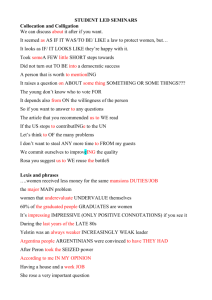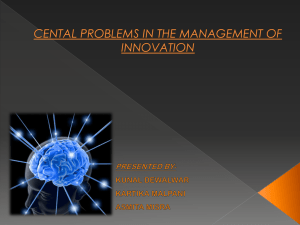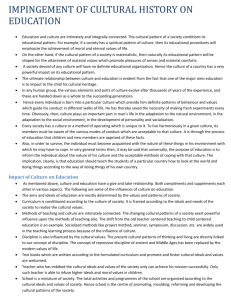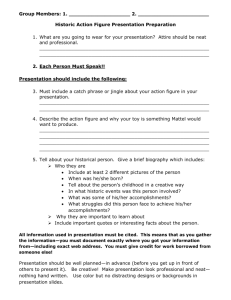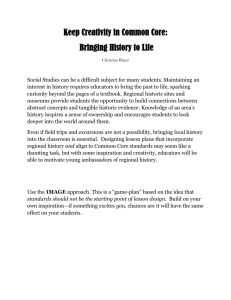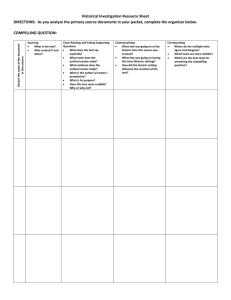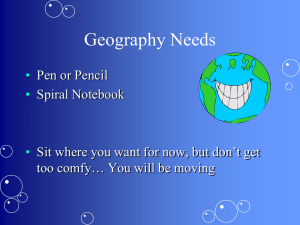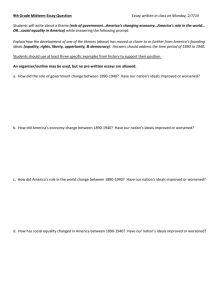Main ideas National challenges to Russia and their impact on
advertisement
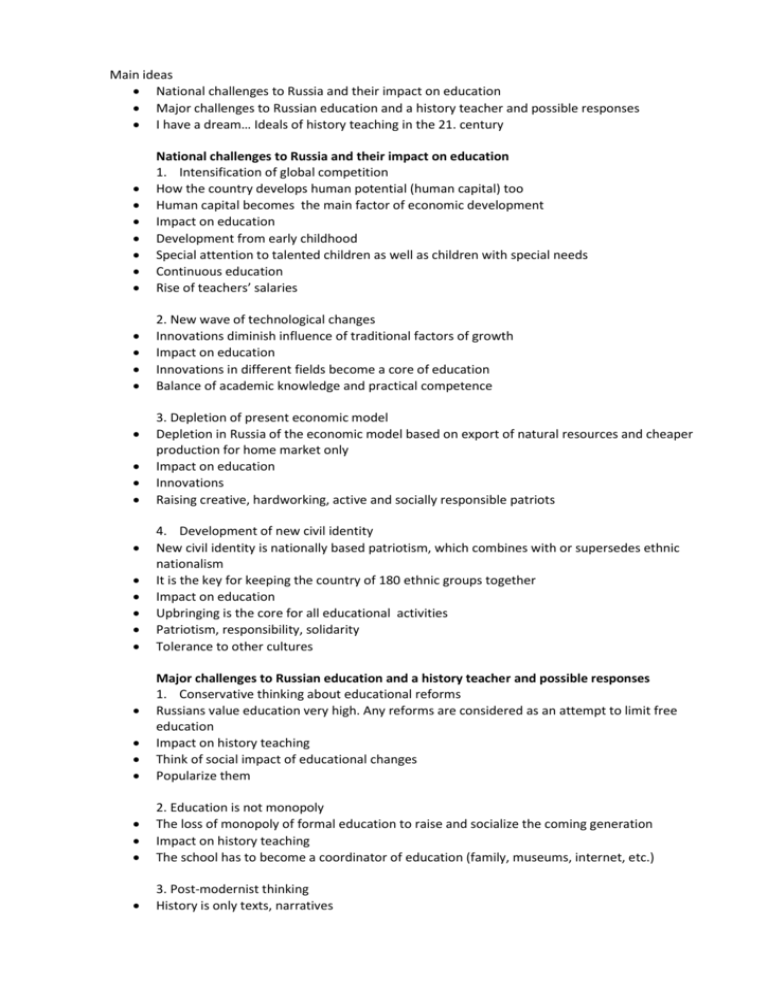
Main ideas National challenges to Russia and their impact on education Major challenges to Russian education and a history teacher and possible responses I have a dream… Ideals of history teaching in the 21. century National challenges to Russia and their impact on education 1. Intensification of global competition How the country develops human potential (human capital) too Human capital becomes the main factor of economic development Impact on education Development from early childhood Special attention to talented children as well as children with special needs Continuous education Rise of teachers’ salaries 2. New wave of technological changes Innovations diminish influence of traditional factors of growth Impact on education Innovations in different fields become a core of education Balance of academic knowledge and practical competence 3. Depletion of present economic model Depletion in Russia of the economic model based on export of natural resources and cheaper production for home market only Impact on education Innovations Raising creative, hardworking, active and socially responsible patriots 4. Development of new civil identity New civil identity is nationally based patriotism, which combines with or supersedes ethnic nationalism It is the key for keeping the country of 180 ethnic groups together Impact on education Upbringing is the core for all educational activities Patriotism, responsibility, solidarity Tolerance to other cultures Major challenges to Russian education and a history teacher and possible responses 1. Conservative thinking about educational reforms Russians value education very high. Any reforms are considered as an attempt to limit free education Impact on history teaching Think of social impact of educational changes Popularize them 2. Education is not monopoly The loss of monopoly of formal education to raise and socialize the coming generation Impact on history teaching The school has to become a coordinator of education (family, museums, internet, etc.) 3. Post-modernist thinking History is only texts, narratives There is no way to learn what the history was in reality Impact on history teaching Historic experience is not just a discourse, talking It is also values behind the texts, significance behind narratives, heritage behind ruins I have a dream… Ideals of history teaching in the 21. century Teachers’ training is popular and different Proud in the country, Able to lead a discussion, Understands different approaches to teaching, Professionally skillful and knowledgeable, Flexible, Eager to self-educate themselves. Teachers compete for a job at school due to high salary, social benefits and prestige. Three sets of study environment info-lectures (individual chairs with pre-installed comps), source and evidence based `discussions (round tables) individual research environment in the afternoon (media-library). All materials are preinstalled on personal I-pads and e-books Teachers and children have sent there their working materials. Teaching materials Short-unit e-textbooks Large sets of activity e-tools source and evidence sets, problem solving sets, project and research database, short and full videos, database of heritage and contemporary issues relating to different historic events, exam-preparation sets. All teaching materials are checked by a board of scientists, professional teachers’ society public organizations. Criteria for selection problem approach non-biased multi-perspective view corresponding to the age of students and answering their present day needs. Each large topic (module) has: at least 30 individual ways of study combining study of issues, discussing problems, researching cases. Each module has to have goals which are open, clear, challenging and motivating for students. The goals must combine working with values, general skills and special historic skills Cases, projects, dialogues, discussions, role games and plays are indispensable part of the curriculum. Field trips and tours either to visit a unique site (work of art, architecture site, historic place, archive or library) or it is a way of getting new personal experience of doing something E-working “sheets” Assessment of students Basic level of federal (national) exam Levels of study the subject in depth and personal achievements. Each of the parts of the assessment has its own share. Upbringing, skills or knowledge? In Russia moral lessons and history ideals are considered to be more important The way to ideals is not an ideology, but a dialogue
